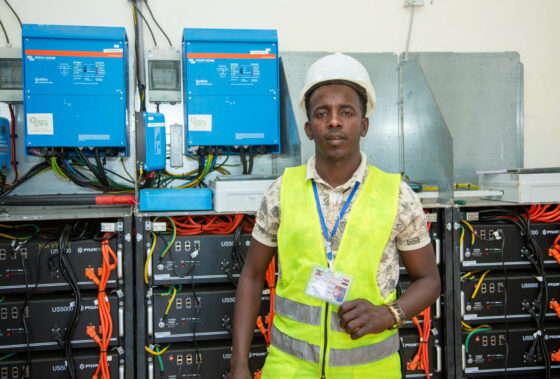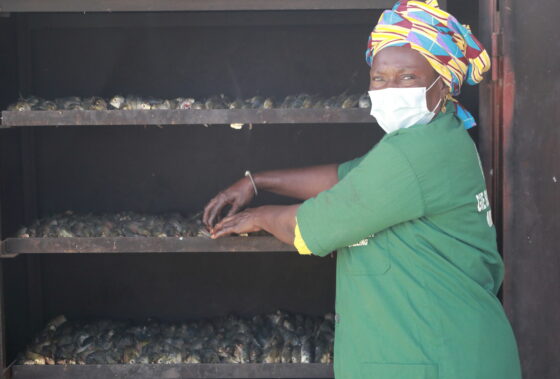Energy kiosks bring solar services and products closer to the communities.
Malish Allen, 31 years old, has always had big dreams. Born in the Eastern equatorial region of South Sudan, Malish made a career as a civil servant. However, Malish’s life changed in 2016 when he and his family fled the escalating violence and left home for Northern Uganda. Today, he lives in Ocea Village in the Rhino Camp Refugee Settlement in Arua District. Set on the sandy shores of the River Nile, Rhino Camp is home to 115,000 refugees. Nearly 25,000 Ugandan families live in surrounding villages. As Ocea Village is not connected to the national grid, residents were forced to travel almost 90 km along bumpy roads to the town of Arua for energy services and products.
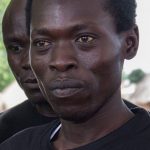
Malish and his friends had a life-changing idea
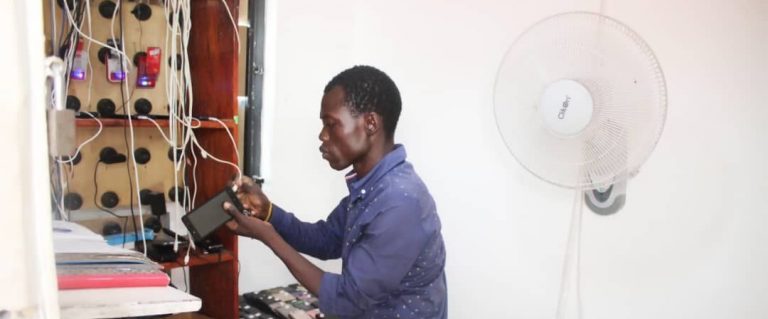
This gave Malish a life-changing idea: in 2017, he and seven friends founded the Akita Mungu Fun and Friendship Association and set up an energy kiosk. They hoped to provide phone charging services to their community. Unfortunately, the kiosk only had the capacity to charge 30 phones each day. As their solar device did not run effectively, their business suffered from regular blackouts. The business’ daily income was less than the equivalent of seven euros.
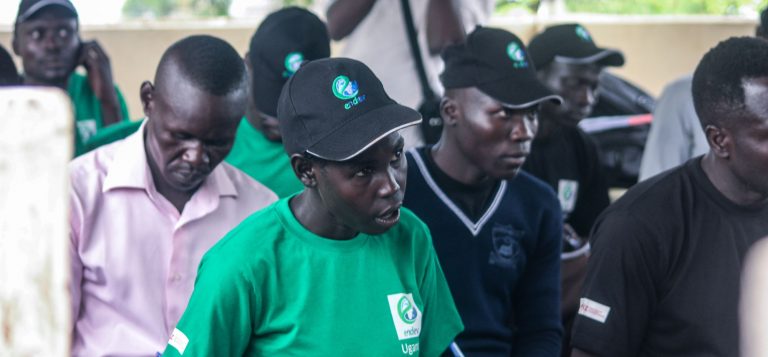
The entrepreneurs participated in on-the-job trainings facilitated by EnDev
But Malish eventually found a solution: Supported by EnDev Uganda, Akita Mungu Fun and Friendship Association moved to a new and spacious energy kiosk with a high-quality solar system to power many more devices. Besides phone charging and secretarial services, the young entrepreneurs introduced rechargeable batteries to reduce e-waste and help households save money. They started expanding their product portfolio to include high-quality solar lanterns and Pico PV systems and also improved cookstoves. Solar products enable children to study and adults to work in the evenings.
We have now expanded our services even more by selling stationery items to schools.
Malish Allen
Through on-the-job training facilitated by EnDev, the friends and business partners learned more about record keeping and marketing, after-sales services, basic repairs and maintaining devices. With the capacity to charge up to 500 phones daily, and the sales of other energy services and products, the new kiosk now generates the equivalent of about 200 euros in daily sales – sufficient for re-stocking, investments, and most importantly an income for the entrepreneurs and their families. Malish explains with his broad smile: “We have now expanded our services even more by selling stationery items to schools, offering printing, laminating, and photo studio services. We hope to offer our services to more people with the knowledge, products, and support we have received.”
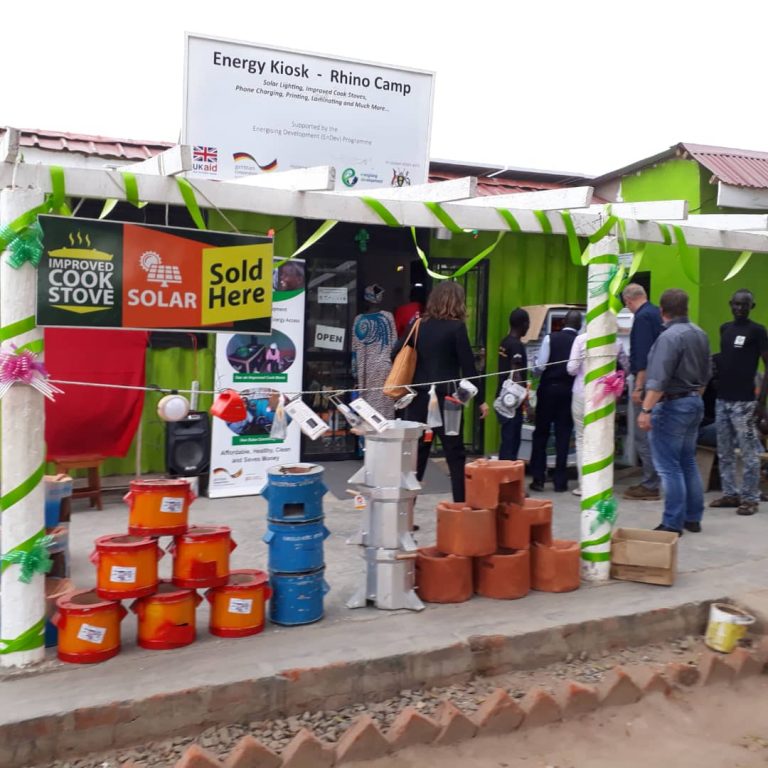
The energy kiosk business model is successful in the context of forced migration and displacement
In 2017 and 2018, EnDev supported two energy kiosks and 60 micro-entrepreneurs to supply kiosks in two refugee settlements. They all received initial support for the set-up of their businesses and are now earning a living by selling energy products and providing energy services to around 5,000 people. EnDev continues to support the kiosk and additional entrepreneurs in the remote refugee settlements to provide much-needed energy services and products. The energy kiosk business model in the context of forced migration and displacement has proven to be successful in improving livelihoods and supporting economic empowerment, offering employment opportunities, and bringing energy services closer to the community. This has gained the attention of humanitarian actors, as well as potential investors and donors. EnDev Uganda, together with the local entrepreneurs, is providing practical insights to promote the model in other locations.

